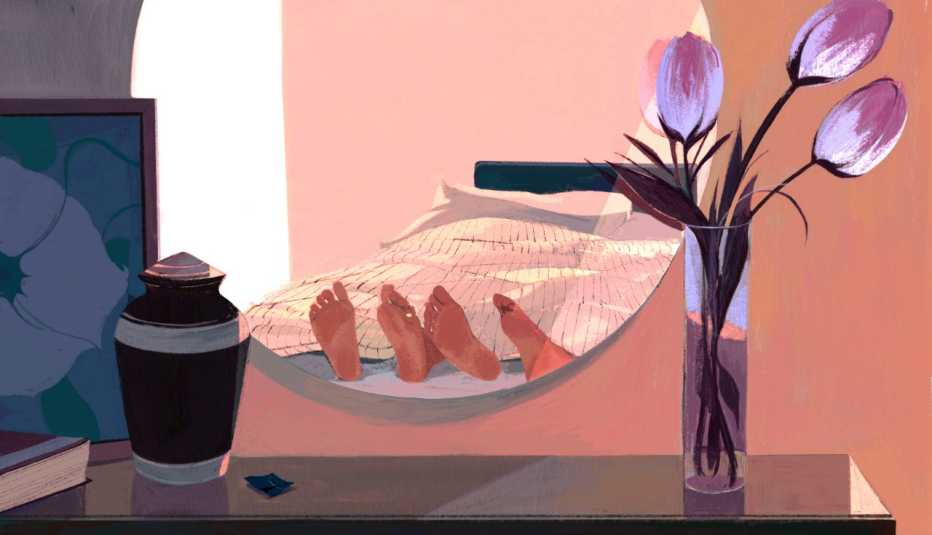Staying Fit


After a partner dies – and grief takes over – there are so many missing pieces. One that’s often not talked about: a hunger for sex and intimacy.
As neuroscientist Nan Wise, an AASECT-certified sex therapist in West Orange, N.J., bluntly frames it: “You can feel sad and horny at the same time. We can hold feelings of grief while at the same time wanting sensations of pleasure and connecting with other people.”


AARP Membership— $12 for your first year when you sign up for Automatic Renewal
Get instant access to members-only products and hundreds of discounts, a free second membership, and a subscription to AARP the Magazine.
Grief and sex – two tricky topics. Put them together and it gets even tricker.
“Most people don’t talk about their sex life. There’s a shame culture around it. The same often applies to grief,” says Sari Cooper, LCSW and AASECT-certified sex therapist based in New York City whose specialities include couples communication.
“Yet for some people, the impetus to engage intimately or sexually is a relief – a returning to life and joy.”
Questions that Cooper has fielded from older adults: Will I ever have sex again? Am I ready to be vulnerable? Do I really want someone looking at my body? If I haven’t had penetrative sex in a while, will it hurt? Will my penis stay erect?
Also in play when grief and sex intersect: judgment from others.
“You often hear, ‘Oh my, they just lost their partner. They’re dating already?’, ” says Tameca N. Harris-Jackson, LCSW, an AASECT-certified sex therapist with a Ph.D. in human sexuality from Widener University.




































































More From AARP
Spice It Up With Sex Toys for Older Adults
Sex after 50 isn’t always easy, but sex toys can helpWhat Sex Is Really Like in Your 50s, 60s and 70s
How to address the challenges to intimacy that arise over the decades
Start Your Own Later-in-Life Sexual Revolution
How to rediscover sexual intimacy and passion as you age
Recommended for You